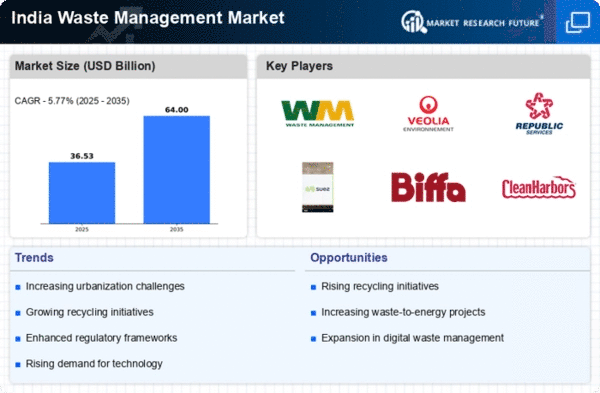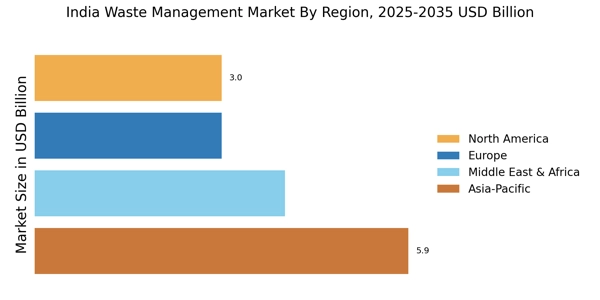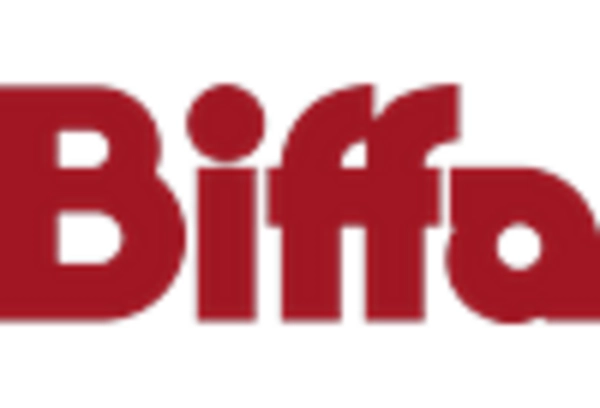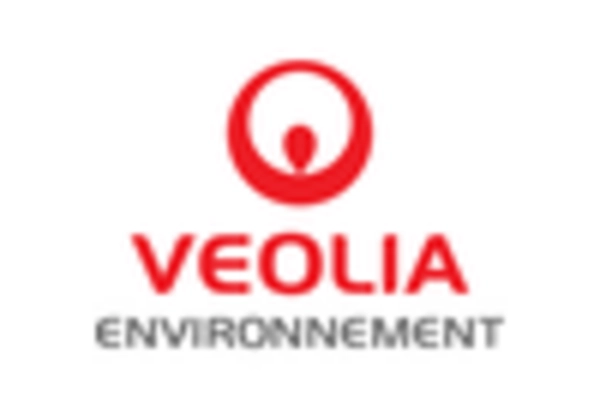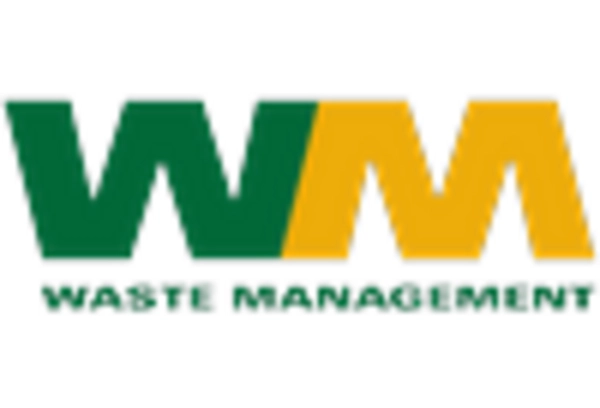Government Policies and Regulations
The role of government policies and regulations is pivotal in shaping the India Waste Management Market. The government has implemented various initiatives aimed at improving waste management practices, such as the Swachh Bharat Mission, which emphasizes cleanliness and waste segregation at the source. Additionally, the Plastic Waste Management Rules mandate the reduction of single-use plastics, thereby encouraging recycling and responsible waste disposal. These regulations are likely to create a more structured waste management framework, fostering investment in infrastructure and technology. As a result, the market is expected to witness a significant increase in funding and support for waste management projects, potentially reaching a valuation of USD 14 billion by 2026.
Investment in Infrastructure Development
Investment in infrastructure development is crucial for the advancement of the India Waste Management Market. The government and private sector are increasingly recognizing the need for robust waste management infrastructure to handle the growing waste volumes. Initiatives such as the National Mission for Clean Ganga and various state-level projects aim to enhance waste processing facilities and promote recycling. It is estimated that the investment in waste management infrastructure could reach USD 10 billion by 2025, driven by both public and private funding. This influx of capital is expected to facilitate the establishment of modern waste treatment plants and enhance the overall efficiency of waste management systems. As infrastructure improves, the capacity to manage waste effectively will likely increase, contributing to a more sustainable waste management ecosystem.
Growing Urbanization and Population Density
Urbanization is a driving force behind the growth of the India Waste Management Market. With an increasing population density in urban areas, the volume of waste generated is escalating rapidly. It is estimated that urban areas contribute to over 60% of the total waste generated in India, which poses significant challenges for waste management systems. This trend necessitates the development of efficient waste collection and disposal mechanisms. The market is likely to adapt by investing in modern waste treatment facilities and expanding recycling capabilities. As cities continue to grow, the demand for effective waste management solutions will intensify, potentially leading to a market growth rate of around 8% annually over the next five years.
Public Awareness and Environmental Concerns
Public awareness regarding environmental issues is increasingly influencing the India Waste Management Market. As citizens become more conscious of the impact of waste on the environment, there is a growing demand for sustainable waste management practices. Campaigns promoting waste segregation, recycling, and composting are gaining traction, leading to a cultural shift towards responsible waste disposal. This heightened awareness is likely to drive consumer preferences towards companies that prioritize sustainability in their operations. Consequently, businesses in the waste management sector may need to adapt their strategies to align with these changing consumer expectations, potentially resulting in a more competitive market landscape. The emphasis on environmental sustainability could lead to an increase in investments in eco-friendly waste management technologies.
Technological Innovations in Waste Management
The India Waste Management Market is experiencing a surge in technological innovations that enhance waste processing and recycling efficiency. Advanced technologies such as artificial intelligence, machine learning, and IoT are being integrated into waste management systems. For instance, smart bins equipped with sensors can monitor waste levels and optimize collection routes, thereby reducing operational costs. The market is projected to grow at a CAGR of approximately 7.5% from 2025 to 2030, driven by these technological advancements. Furthermore, the adoption of automated sorting systems is expected to increase recycling rates, which currently stand at around 30% in India. This shift towards technology not only improves operational efficiency but also promotes sustainable practices within the industry.


